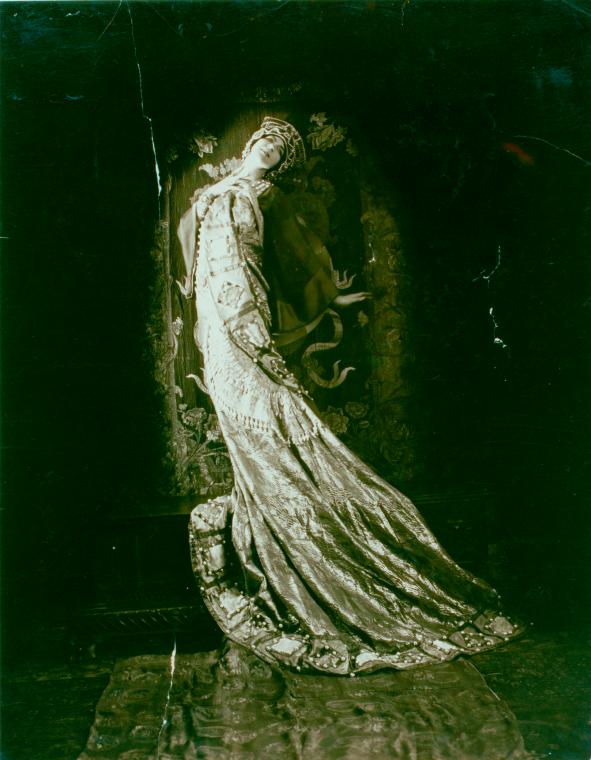 | |
| Ruth St. Denis, Dance of Theodora, New York Public Library |
Take a look at any dancer you admire. Sure, she's got a couple of 'wow' moves in there, but notice how she's impossible to tear your eyes from. After awhile, you will probably start to notice the things that make her not technically perfect, but for the big picture, they don't matter. You can bring the same thing to your dance by putting a little heart into your performance.
How do you give heart to your performance?
Give yourself a story. Now, I'm not talking about acting out an entire monologue, or writing a play, but you want to tell yourself a story about the dance you're doing. Give yourself a reason for being on stage, whatever it is, and then use it to fuel your performance. Your audience will connect more with you when you have a story, then if you were to just go on stage and dance.
But I just like this music!
So how do you give yourself a story? Start by listening to your performance music and writing down what you see in your mind's eye. How does the music make you feel? Do you see a setting, a costume, props, colors, certain backdrops? Even if all you picture is you on a stage somewhere, go with that. And remember, nothing that you picture while listening to music is wrong!
When you're preparing your performance, remember what you felt and saw while listening to your music, and use that to inspire your movements. For instance, if you imagined a sad scene, think of what you feel like and do when you're sad, and translate that with your dance. If you imagined a joyful celebration, think of a time when you were sharing happiness with others. No matter what you are trying to express, you can always find something from your own experiences to help you.
How a story can help off stage
Giving yourself a story can even help when you're not prepping for a performance. Sometimes you'll have bad dance days, or you're just not getting a new combo. You find yourself thinking that you're a terrible dancer, maybe you should quit--instead of telling yourself that, though, tell yourself the story about the kind of dancer you want to be. You'll find that you're much more willing to continue when you can tell yourself a story then if you told yourself you're a bad dancer (by the way, this little trick is also known as cognitive behavior).
This worked for me as recently as last week: I was having trouble adjusting to a new formation, and was ready to pack it in for the night. Then I remembered what kind of dancer I wanted to be. Suddenly, I felt like giving the formation another try, and I was able to grasp it before the end of class.
When you're contemplating your next performance or you're having trouble in practice, just ask yourself, "What's my story?". Then, dance with that story in mind!
No comments:
Post a Comment